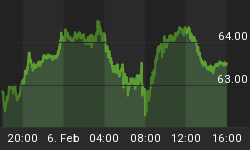Financial Times writer Wolfgang Münchau says Reform the Economic System Now or the Populists Will Do It.
"It is one thing to say, as some of us have done, that the western liberal elites should stop doubling down when faced with a populist threat. But beyond that, what should they actually do?" asks Münchau.
Münchau cites Marine le Pen in France, but misses the far greater threat of Beppe Grillo's Five Star Movement in Italy. I am sure he would agree Italy is a bigger threat right now.
When I first read his article, loaded with Keynesian references, I thought he was proposing more Keynesian bullsheet.
On second glance, I am not quite sure what he proposes, if anything.
Autopilot
Münchau writes "We should put fiscal policy off the autopilot and challenge the tyranny of the ubiquitous 2 per cent inflation target. And we should start making a distinction between the interests of the financial sector and the economy at large. Failure to do so was one of the reasons for the Brexit vote."
I wholeheartedly agree, but is Münchau asking for more inflation or less inflation?
A correct approach would be to get central banks out of the equation altogether. Central banks' push for two percent inflation in a price deflationary world is madness.
Romer's Gibberish
Münchau also cites Paul Romer, chief economist of the World Bank, who compared macroeconomics with string theory in physics in a devastating critique of his economics profession.
Romer's article is nothing but economic gibberish. I cannot even tell whether Münchau agrees or disagrees.
I do know all the Keynesian models are wrong. I also know that the idea that a group of alleged economic wizards can sit in a room and divine the correct interest rate to achieve a dual mandate of low unemployment and high growth is absurd.
If this same group of individuals decided to set the price of orange juice, everyone would be shocked. In reality, it's much harder to set the correct interest rate because policy errors on interest rates become obvious only after it's too late to do anything about them. The housing bubble is a classic example.
Three economic bubbles in quick succession are proof enough of central bankers' ineptitude.
The wizards have tried everything to get inflation in a deflationary world. If I read Romer correctly, he wants even higher inflation targets.
I have a better idea: Let the free market set interest rates because central bankers have proven beyond a shadow of a doubt they are clueless.
Structural Problems
What ails Italy, Greece, and France is not lack of fiscal stimulus, but government interference in everything combined with high tax rates that everyone struggles to avoid.
When it is too difficult to fire workers, businesses will not hire them in the first place. When Government makes it too hard to start a business, businesses don't start.
By what shade of idiocy does France insist on a 35 hour work week, with no work on Sunday?
Agricultural tariffs in France to save the French way of life costs the rest of Europe dearly. Mindless sanctions on Russia cost Europe dearly, especially Italy.
Bailing out banks at taxpayer expense cost everyone but the bankers dearly. Because of structural differences between Italy, France, Spain, Greece, and Germany, there is no such thing as an ideal interest rate in the Eurozone.
Interest rate policy for Greece should not be the same as interest rate policy for Germany. That's a problem Münchau does not even mention, but again I believe he knows.
Economic Challenge to Keynesians
Of all the widely believed but patently false economic beliefs is the absurd notion that falling consumer prices are bad for the economy and something must be done about them.
I have commented on this many times and have been vindicated not only by sound economic theory but also by actual historical examples.
My article Deflation Bonanza! (And the Fool's Mission to Stop It) has a good synopsis.
And my Challenge to Keynesians "Prove Rising Prices Provide an Overall Economic Benefit" has gone unanswered.
There is no answer because history and logic both show that concerns over consumer price deflation are seriously misplaced.
The BIS did a study and found routine deflation was not any problem at all.
"Deflation may actually boost output. Lower prices increase real incomes and wealth. And they may also make export goods more competitive," stated the BIS study.
It's asset bubble deflation that is damaging.
And in central banks' seriously misguided attempts to fight routine consumer price deflation, central bankers create very destructive asset bubbles that eventually collapse.
When those bubble burst, and they will, it will trigger debt deflation, which is what central banks ought to fear.
For a discussion of the BIS study, please see Historical Perspective on CPI Deflations: How Damaging are They?
Meanwhile economically illiterate writers bemoan deflation, as do most economists and central banks. The final irony in this ridiculous mix is central bank policies stimulate massive wealth inequality fueled by soaring stock prices.
The Solution
This is what it comes down to: There was a credit explosion to the benefit of banks and the wealthy once Nixon closed the gold window. At that point, governments could print at will, and they did.

Central bank policy cannot fix structural problems, only the free market can. And that includes a truly free market in money as well.















